Spirea - a royal decoration of your garden. Its beautiful blossoms are able to create a special atmosphere in your garden plot, which will vary particularly comfortable, and give you a heavenly pleasure. This perennial shrub prized by gardeners for their long and luxuriant bloom. In nature, there are several kinds of shrubs, among which are two main groups: In the spring,, letnetsvetuschie.
Beautiful Japanese spirea refers to letnetsvetuschemu mind and is capable of all summer delight us with their lovely flowers nice pink-red color and stunning decorative bushes.
Spiraea japonica, photo
Among the many varieties of Spiraray shrub, which in nature there are more than 90 species, the queen of the garden, of course, the Japanese spirea is considered. In a wild form, it can be found in the mountainous regions of China and Japan. Beautiful shrubs whose height reaches up to 1.5 meters, decorated with many subtle shoots, which during the dissipation of the dark red shade acquire. Then they are green, and closer to autumn painted in the color of red gold. The breeders managed to use this property of Spiraei and bring new varieties that are able to delight us with amazing blossoms.
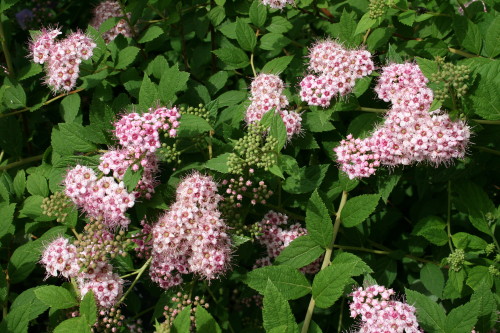
Japanese Spiray, Description
We hope that the beautiful view of the shrub and his long blossom will conquered you, and you are already looking forward to pick up for your garden the most reasonable view for you, and maybe several of them. After all, turning on a little my designer fantasy, you can successfully combine the types of spirea, the combination of which will turn your garden into a fabulous corner. We invite you to familiarize yourself with the most popular shrub varieties, which includes plants:
- A variety of coloring leaves and inflorescences.
- Large and dwarf crowns.
- Spring and summer flowering.
It's important to know! No matter what kind of shrubs you did not pick up, they all differ without exception to simple care, and the first inflorescences of the shrub you will already watch for the third year after landing.
Golden Princess
Golden Princess - a view of the Japanese Spiray, which is rightfully considered the queen of the garden. The height of its crown is up to 0.6 meters, and in diameter it can develop up to 1.2 m. Depending on the season, its decorative foliage is able to change its color from a greenish yellow shade to a saturated orange, against the background of which dense pink inflorescences. A 5 cm with a diameter of 5 cm. The most beautiful bloom can be observed on the shrub if it is located on the sunny side of the site.
Spirea Gold Flame
Spirea Gold Flame is characterized by a beautiful form of foliage. At the beginning of the dissolution process, it covers a warm purple shade, which after some time changes its color to gently yellowish, and closer to autumn a bush is covered with a saturated orange-yellow foliage. Spiraray inflorescences have a thyroid or rose-colored shape.
The height of the plant's bush reaches 0.8 m. The beginning of flowering falls to mid-June and continues until the end of the summer. Shrub Gold Flame is successfully suitable for the construction of a living hedge and requires abundant irrigation.
Spirea macrophila
The variety of Macrofila Spirei is especially valued for its beautiful foliage, the shade of which smoothly goes into a more rich color on the top of the shoots. In the spring season, her foliage acquires purple color, a greenish tint comes in the middle of summer. And closer to the fall of the foliage becomes golden yellow, which harmoniously fits into the overall design of the surrounding nature.
Macrofila variety perfectly decorates flower beds on which many years of flowering plants grow. No less interesting, they act as the framing of the tracks and in the form of a decorative decoration of the household site from the sunny side.
Spiraya Crispa
Spiray of Crispa deserves special attention among the gardeners of amateurs. This shrub has an interesting spherical crown, which consists of a few understanding spontaneous shoots that are covered with oblong leaves, originally excised around the edges. His flowers are collected in inflorescences and have a purple or pinkish color.
Probably many of you will be interested in Dwarf Spirea. The peculiarity of the dwarf shrub is its original making shape, decorated with elliptical foliage. Flowers Spiray from June to September white flowers, which, of course, is originally combined with other perennial and annual plants in the garden.
Spiray Japanese, landing
Landing the Japanese Spiray requires to comply with some rules that we will talk in detail in detail.
Professional gardeners recommend landing spire in the autumn period, immediately after the bushes dump their foliage. A shrub landing and spring is allowed, but necessarily until the kidney on branches will begin to bloom.
Depending on the type of shrub and the period of its flowering, each of you can correctly navigate on the period of planning. If you picked up a shrub that blooms early in spring for your garden, then it is best to plant it in the soil in the autumn. Thus, the plant until spring is already well rooted and will delight you with its blooming already in early spring.
Correctly prepare seedlings for landing
So that your shrub of the Japanese Spirea gave you abundant flowering and rich foliage, before falling into the ground it needs to be properly prepared. If you purchased seedlings with an open root system, then first of all you should carefully examine their condition. Delete damaged roots, as well as too long. The cutting angle of the roots should be smooth, which will allow roots to hold together. Then shorterate the above-ground part on 1/3 of the branch length.
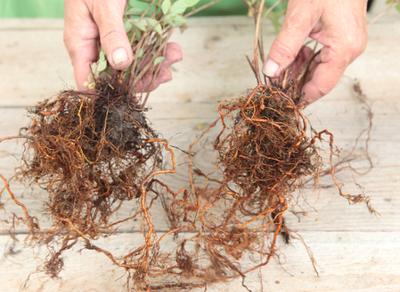
Saplings with a closed root system before landing should be removed from the container and plentifully pouring the root part with water. If you find around the root part of the Earth's chain lumps, then better place a seedling in a bucket with water for several hours.
Then choose a 50 cm shovel to a depth and 50 cm in diameter, and accurately fall out the seedlings. Consider the fact that on homogeneous soil the shrub will not be able to please you with abundant bloom, unlike those that will be planted in the rich soil. In the event that the area is too clay soil, it is recommended to make drainage from brick and sand. At the bottom of the pits, plunge the mixture:
- 1 part of sand,
- 1 part of the peat,
- 2 pieces of grain earth.
Seedlings are needed on a well-lit plot. If you decide to grow a beautiful live elevation, then the distance between the yams must be observed at least 1.5 meters.
Spiray Japanese, Care
Spirea Japanese does not require much care. However, comply with some rules necessary.
First, if you put the shrub plant in the spring, then immediately after the landing, it is necessary to hide each of them with water room temperature. The process of watering must be regular.
Important! The summertime types of spiries require a more abundant watering, after which it is necessary to mulk the soil immediately, which allows the roots for a longer time to maintain moisture.
The feeding process is carried out three times per season with mineral fertilizers. In the event that the seedlings are planted in homogeneous soil, then the first feeding is carried out in early spring, and 2 follow-up in June and August, respectively.
For the preparation of fertilizer you need in 60 liters of water to dilute 10 liters of the dung fluid and add to the mixture of 10 grams. Superphosphate.
Sprinking Spiray Japanese
Spiray Japanese is an amazing beauty shrub whose flowering will delight you all summer. To give it the desired and correct form, it is necessary to regularly trim. Although some of the gardeners are not inclined to the opinion of mandatory trimming, but still, if you want to see a beautiful and well-kept plant in the garden, you should not forget about this process. Otherwise, you can detect ugly shrubs, with several flowers, inside which will be "conceded" the mass of dry leaves and branches.
Important! The process of circumcision of bushes is carried out taking into account the timing of the kidney attachment.
Therefore, all shrubs are divided into 2 groups:
- The first group of shrubs of Spiray Japanese - the laying of color kidneys passes into the year of their flowering.
- The second group of Japanese Spiraray Shrubs - the kidney book is held in the previous year.
The first group of shrubs is characterized by blossom from the first year. They are eclipsed by inflorescence. A year later, new inflorescences will be formed on lateral shoots, while the tips will begin to die and dry out. Therefore, such a shrub should be simultaneously rejuvenated by the trimming of escape to the swords of the stem.
It is necessary to take into account the fact that the stems of the shrub on average live 6-7 years. At the same time, this category of spirea is able to give a strong piglet. Therefore, gardeners recommend every 4 years to carry out a radical trimming of a shrub to a height of up to 30 cm above the ground.
The second category of the Japanese spirea shrub in the first year of his life only lays the kidneys, while the side shoots are actively developing. This allows you to get beautiful and rich shrubs that will serve as a beautiful decoration in landscape design.
Trimming is carried out annually, while removing the tips of the bits at the same time. Fully remove old branches you need 1 every 7 years.
Spiraea Shrub breeding Japanese
Many amateur gardeners are interested in the question - how to properly reproduce the spirah shrub Japanese. This is not strange, because everyone wants to get such a shrub. We are in a hurry to delight you - each can cope with the shrub, especially since this process you can pursue in several ways.
Let's start, perhaps, with reproduction by seeds. Immediately I want to warn you that the reproduction of Spiraeia by Japanese seeds does not preserve the varietal signs.
Reproduction of seeds
Putting ripened seeds and well they are dried. Spring prepare a peat-soil mixture, place it in the container and prepared by gently disembark seeds. Saplings need to be planted in open ground by the end of June, after prischipnuv main root. In this way, the root system of shrubs begin to grow more powerful, allowing you to get healthy and strong bush. A flowering bush grown from seed, you will enjoy already on the 3-4th year.
Reproduction of cuttings
In July, must be carefully cut into cuttings of new shoots. Take care that each of them had at least 5-6 leaves. Remove lower leaves and lower the cuttings into solution "Epin" at 12 hours. Then treat with "Kornevinom" and put in the rooting container, previously filling it with moist sandy substrate.
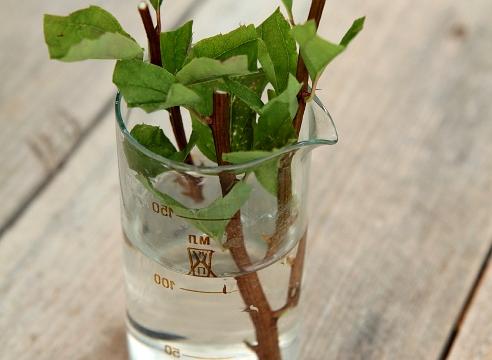
Cover the container with cling film or glass and place it on the window sill on the south side. Three times a day, open container and spray the cuttings with water at room temperature. With the advent of the roots, seedlings can be planted in open ground, cover them with dry leaves and box. By the spring on your seedlings appear side shoots that will allow you to transplant little bushes for permanent residence.
Division bush
4-5 and summer bushes are ideal for this method of reproduction. To carry out the breeding process, they need to carefully dig out the soil during the leaf fall. Rinse the roots and divide shears 2-3 bush. Make sure that each bush has a good root lobe and at least 3 strong shoots.
Then, plant them in a pre-prepared hole, expand the roots and gently sprinkle the ground. Seal the soil around the seedling and abundantly pour two buckets of water.
slips
As soon as spring comes, and your spiraea leaves begin to blossom, you can start to multiply tapped bush. To do this, select a healthy branch and incline her to the ground. Attach it with wire and sprinkle the ground. Every day, water the soil in these places, so you will be able to next year already spend jigging young bush. In winter, elbows Insulate dry leaves that will allow them to more easily transfer frozen.
If you'll be spending taps breeding process, we recommend that you first buds on the young bush remove, allowing it to actively grow.
Here you have already learned how to care for the shrub of the Japanese Spiray, learned the rules of landing, trimming and reproduction. And to consolidate your knowledge, we invite you to watch the video.

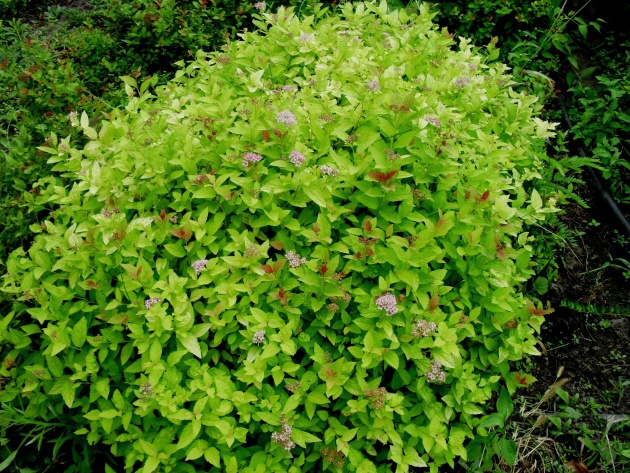
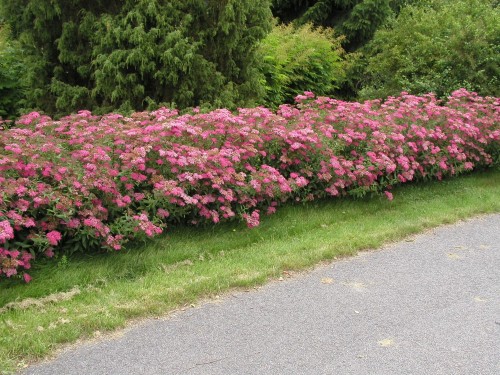
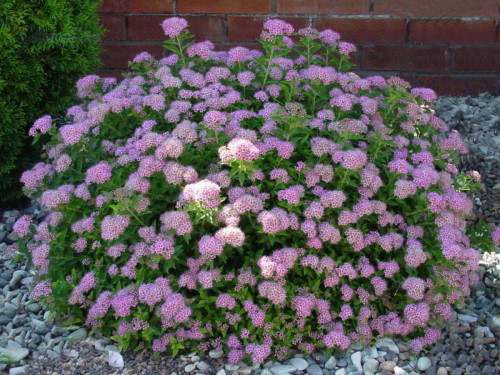
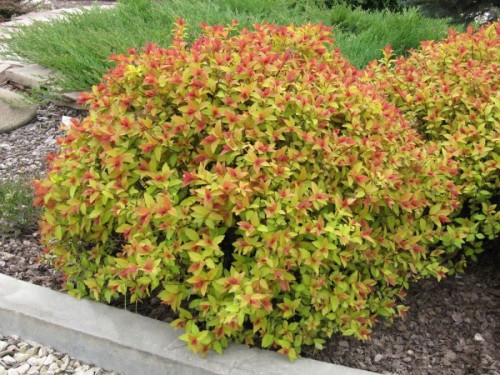
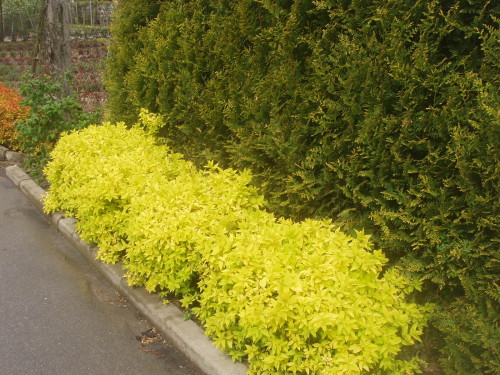
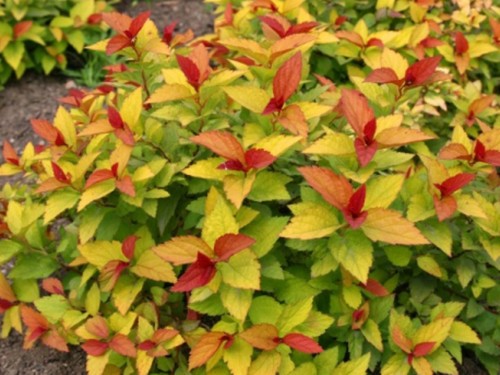
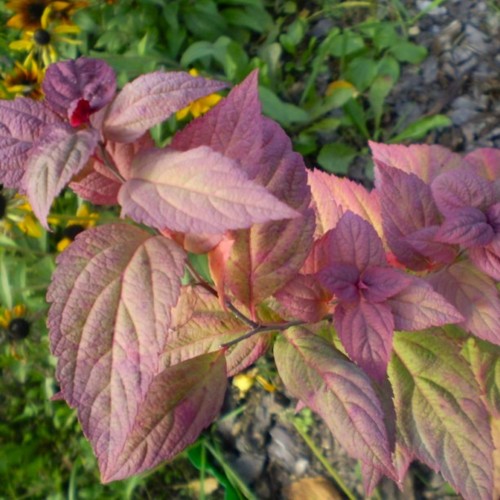
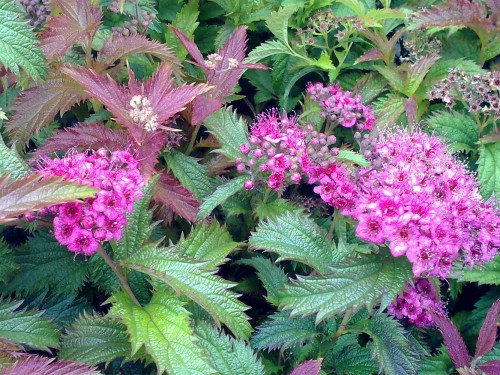
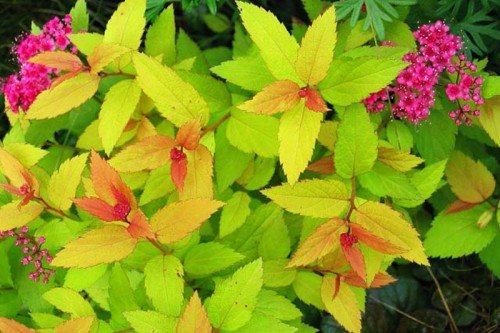
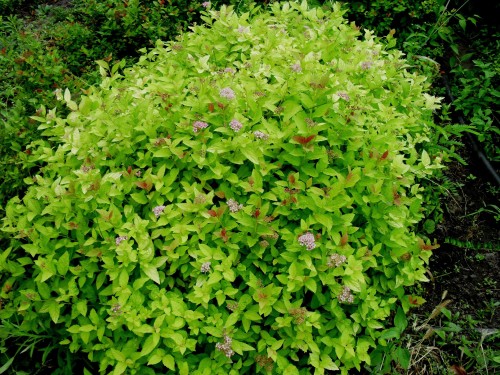
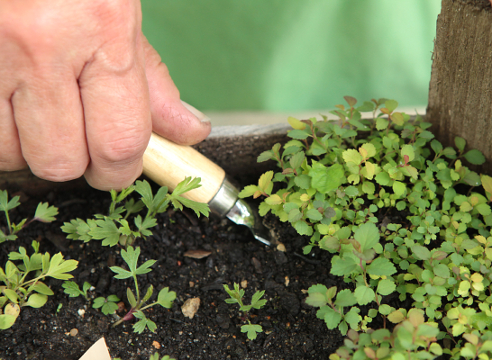
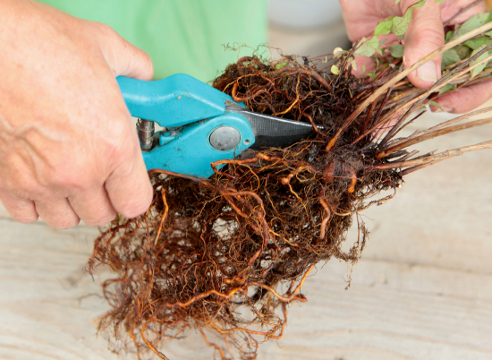
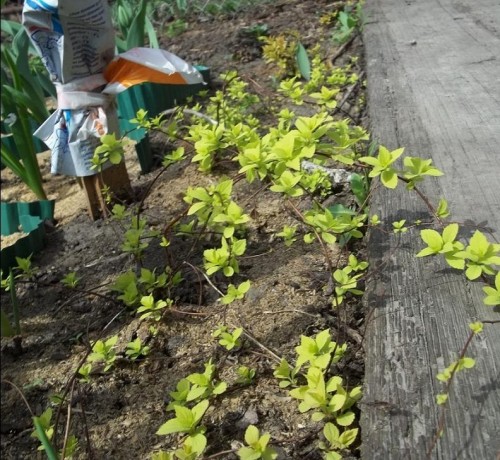
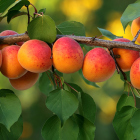
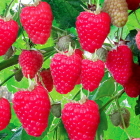
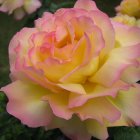
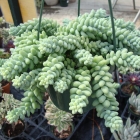
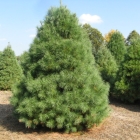

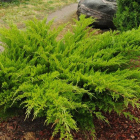
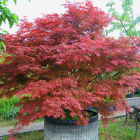
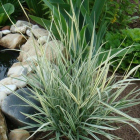
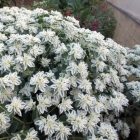

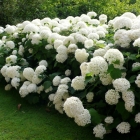
 Start a discussion ...
Start a discussion ...